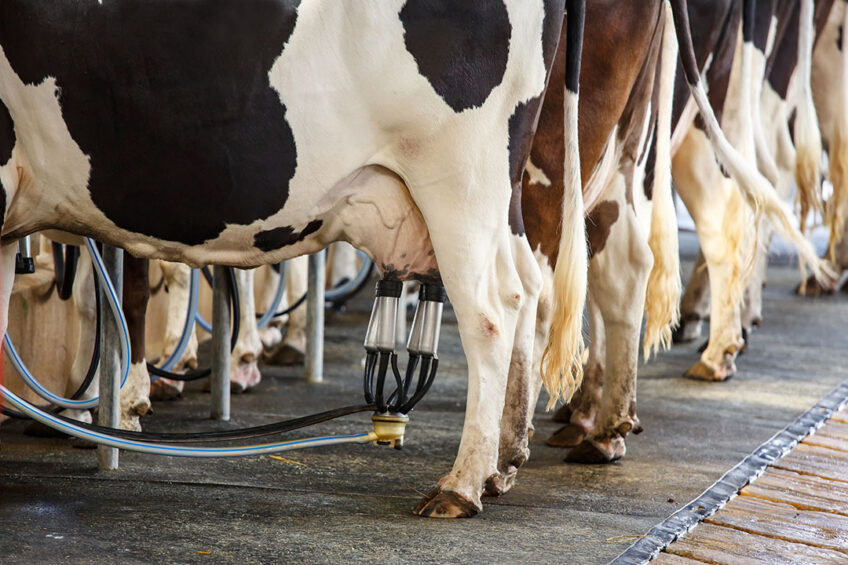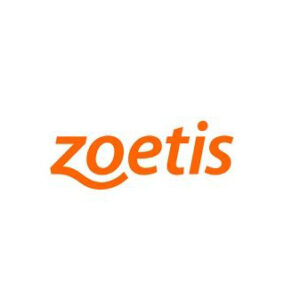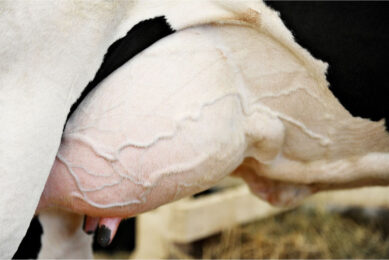A game-changer in mastitis treatment

Mastigram+ is the new on-farm Gram-positive detection test that will change the way mastitis is treated on farms.
Clinical mastitis is a significant problem on dairy farms due to its impact on health, welfare and productivity. It is also a major contributor to antibiotic use in dairy cattle. Mastitis, which is inflammation of the mammary gland, is most frequently caused by bacterial intramammary infection.
Mastitis causes physical and chemical changes in the milk, which can be detected via a variety of methods. Once detected, there is limited information to help inform the treatment decision-making of the animal.
The bacteria that can cause mastitis can be categorised as either Gram-positive or Gram-negative. Knowing which type of bacteria has caused the clinical case of mastitis is important so that an informed decision can be made about the most appropriate antibiotic for treatment.
Mastitis detection
The Vetscan Rapid Mastigram+ test from Zoetis is the first on-farm lateral flow diagnostic test that can identify Gram-positive bacteria in the time between milking. It has very high diagnostic accuracy, with 99.1% sensitivity and 100% specificity. This means producers can be confident whether or not the mastitis case has Gram-positive bacteria present or not.
Samples are taken at the point of detection of a new mild or moderate clinical mastitis case. A sample of just 1 ml is required to run the test. At this time, the cow can be treated with a non-steroidal anti-inflammatory medicine (NSAID). The sample is incubated for 7 hours, and then the lateral flow dip test is run. The incubated milk sample is placed in a test tube, and the lateral flow stick is inserted.
After 10 minutes, the result can be read from the test strip. This will produce a test result in time for the next milking so that a treatment decision can be made. The presence of a Gram-positive bacteria, a positive result, suggests that the case may benefit from treatment with a narrow-spectrum targeted course of antibiotics, which can be prescribed by the vet.
A negative test result, indicating that a Gram-positive bacteria is not present in the sample, may mean that treatment with antibiotics is not required. Many Gram-negative bacteria that cause clinical mastitis have a high self-cure rate, so antibiotics are not always required.
Responsible use of antibiotics
There are many benefits to knowing whether a Gram-positive bacteria is present in the milk sample of a mastitis case. Firstly and fundamentally, this facilitates the responsible use of antibiotics and contributes to the One Health approach to minimising the spread of antimicrobial resistance (AMR). Antibiotics are only required in some mastitis cases, mainly those caused by Gram-positive pathogens. Most Gram-negative cases do not require antibiotic therapy. When antibiotics are required, they can be narrow-spectrum products to target the bacteria present.
Using a narrow spectrum, targeted antibiotic enhances a responsible approach to antibiotic use and can lead to higher cure rates. A further benefit of testing is improved mastitis cure rates thanks to targeted treatment, leading to fewer repeat mastitis cases. There are fewer cases because the recurrence rate is lower for an individual case, and there is less opportunity for infection to spread, leading to fewer new cases. Overall, this means that the focus can be shifted from the treatment of cases to the prevention of new cases, improving overall health and welfare on the farm and increasing productivity and profitability.
A consequence of reduced antibiotic use alongside improved cure rates is that there are likely to be fewer cows that would fail an inhibitory substance test and, therefore, a reduction in milk antibiotic residue failures. This brings benefits to farmers, vets as well as milk processors and, ultimately, consumers. There is lower antibiotic use, less milk needs to be withdrawn, and fewer cows need to be treated. This means that less milk is wasted throughout the supply chain.
In conclusion, Mastigram+ is an exciting new on-farm diagnostic test for mastitis in dairy cattle that aids decision-making for mastitis treatment. The test is easy and quick to perform and can be straightforwardly incorporated into current workflows. Using the test supports the One Health approach to the responsible use of antibiotics, allowing reduced antibiotic use and targeted narrow-spectrum treatment for cases that do require antibiotic therapy.
By using Mastigram+, farms can maximise the chances of treatment success when there is a case of clinical mastitis and thus improve productivity and profitability.
Join 13,000+ subscribers
Subscribe to our newsletter to stay updated about all the need-to-know content in the dairy sector, two times a week.



